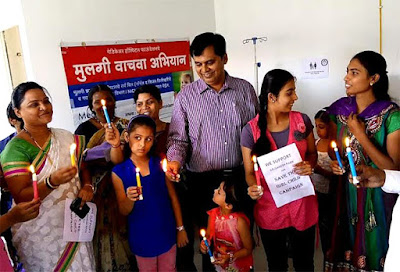To empower the underprivileged girls in the society, 27-year-old Goregaon resident, Ishita Sharma, started an initiative to teach basic martial arts techniques so that girls are able to protect themselves. The initiative named as ‘Mukka Maar’, was started on January 16 and is already popular among the Versova residents.
Under this initiative, underprivileged girls can join the one hour martial arts sessions conducted at the Versova Beach during the weekends.
Talking about the initiative, Ishita Sharma, an actress and founder of Aamad Performing Arts & Wellness, said, “The girls in the society usually don’t raise their voice against any kind of harassment or violence. We wanted to empower the girls and help them stand against any kind of harassment they face in their daily lives. The sessions will help them to learn about basic self-defence techniques. We want to reach out to as many underprivileged girls as possible. We have a martial arts trainer Alexander Fernandes, who will be conducting the sessions.”
Talking about the initiative, Sharma, said, “Few weeks ago, while I was traveling in my car from Shashtri Nagar at night, few bikers were peeping inside my car and staring at me. I slowed my car to let them go but that did not work. Later, I shouted at them because of which they ran away. That incident made me realize that it is important for each girl to know how to protect herself in such situations. That is what made me begin this initiative like Mukka Maar and teach self-defence to the underprivileged girls.”
More than 10 girls from Versova village have participated so far in the self-defence session held by Mukka Maar.
The initiative has been spread through social media and door to door campaign mostly. Sharma added, “We spread the word about the initiative through Facebook and other social media platforms. I even asked few of my friends to get their housemaids for the sessions. It is a challenging task to make them understand about the initiative and ask them to join us for the cause. We also went door to door in nearby area of Versova beach and made people aware about our initiative. We hope many more girls join us for the sessions. It is a long term initiative and anybody can join anytime. My friends helped me in spreading the word and also my friend Isha Chopra helped me to design the posters for online campaign of the initiative.”
Girls who are 8 to 18 year old can join the initiative. Sharma also conducted fund raising session for this initiative through her organization ‘Aamad’ few weeks back.
You can contact them on +91-99300 29265 or info@aamad.co





































